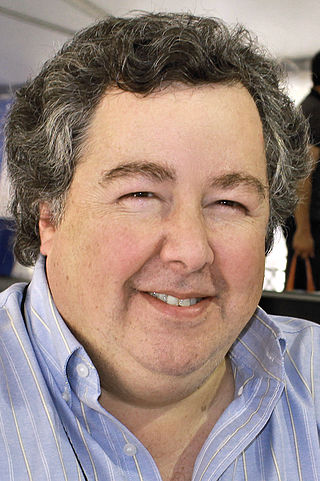Related Research Articles

John Angus McPhee is an American writer. He is considered one of the pioneers of creative nonfiction. He is a four-time finalist for the Pulitzer Prize in the category General Nonfiction, and he won that award on the fourth occasion in 1999 for Annals of the Former World. In 2008, he received the George Polk Career Award for his "indelible mark on American journalism during his nearly half-century career". Since 1974, McPhee has been the Ferris Professor of Journalism at Princeton University.
Cornelius Mahoney Sheehan was an American journalist. As a reporter for The New York Times in 1971, Sheehan obtained the classified Pentagon Papers from Daniel Ellsberg. His series of articles revealed a secret United States Department of Defense history of the Vietnam War and led to a U.S. Supreme Court case, New York Times Co. v. United States, 403 U.S. 713 (1971), which invalidated the United States government's use of a restraining order to halt publication.

George Packer is an American journalist, novelist, and playwright. He is best known for his writings about U.S. foreign policy for The New Yorker and The Atlantic and for his book The Assassins' Gate: America in Iraq. Packer also wrote The Unwinding: An Inner History of the New America, covering the history of the US from 1978 to 2012. In November 2013, The Unwinding received the National Book Award for Nonfiction. His award-winning biography, Our Man: Richard Holbrooke and the End of the American Century, was released in May 2019. His latest book, Last Best Hope: America in Crisis and Renewal, was released in June 2021.

Richard Lee Rhodes is an American historian, journalist, and author of both fiction and non-fiction, including the Pulitzer Prize-winning The Making of the Atomic Bomb (1986), and most recently, Energy: A Human History (2018).
Joseph Salem Lelyveld was an American journalist. He was executive editor of The New York Times from 1994 to 2001, and interim executive editor in 2003 after the resignation of Howell Raines. He was a Pulitzer Prize–winning journalist and author, and a contributor to the New York Review of Books.
A listing of the Pulitzer Prize award winners for 1997:

Richard Russo is an American novelist, short story writer, screenwriter, and teacher. In 2002, he was awarded a Pulitzer Prize in Fiction for his novel Empire Falls. Several of his works have been adapted into television series and movies.
Arnold Rampersad is a biographer, literary critic, and academic, who was born in Trinidad and Tobago and moved to the US in 1965. The first volume (1986) of his Life of Langston Hughes was a finalist for the Pulitzer Prize and his Ralph Ellison: A Biography was a finalist for the 2007 National Book Award.
The following are the Pulitzer Prizes for 1987.

Thomas Edwin "Tom" Ricks is an American journalist and author who specializes in the military and national security issues. He is a two-time winner of the Pulitzer Prize for National Reporting as part of teams from the Wall Street Journal (2000) and Washington Post (2002). He has reported on U.S. military activities in Somalia, Haiti, Korea, Bosnia, Kosovo, Macedonia, Kuwait, Turkey, Afghanistan, and Iraq. He previously wrote a blog for Foreign Policy and is a member of the Center for a New American Security, a defense policy think tank.

David Brion Davis was an American intellectual and cultural historian, and a leading authority on slavery and abolition in the Western world. He was a Sterling Professor of History at Yale University, and founder and director of Yale's Gilder Lehrman Center for the Study of Slavery, Resistance, and Abolition.

Lawrence Wright is an American writer and journalist, who is a staff writer for The New Yorker magazine, and fellow at the Center for Law and Security at the New York University School of Law. Wright is best known as the author of the 2006 nonfiction book Looming Tower: Al-Qaeda and the Road to 9/11. Wright is also known for his work with documentarian Alex Gibney who directed film versions of Wright's one man show My Trip to Al-Qaeda and his book Going Clear. His 2020 novel, The End of October, a thriller about a pandemic, was released in April 2020 during the COVID-19 pandemic, to generally positive reviews.

Fox Butterfield is an American journalist who spent much of his 30-year career reporting for The New York Times.
Ashes to Ashes: America's Hundred-Year Cigarette War, the Public Health, and the Unabashed Triumph of Philip Morris, written by Richard Kluger and published by Alfred A. Knopf in 1996, won the 1997 Pulitzer Prize for General Non-Fiction. It is a detailed account of the American tobacco industry, focusing particularly on the Philip Morris tobacco company.

Dan Fagin is an American journalist who specializes in environmental science. He won the 2014 Pulitzer Prize for General Nonfiction for his best-selling book Toms River: A Story of Science and Salvation. Toms River also won the Helen Bernstein Book Award for Excellence in Journalism, the National Academies Communication Award, and the Rachel Carson Environment Book Award of the Society of Environmental Journalists, among other literary prizes.

Tim Weiner is an American reporter and author. He is the author of five books and co-author of a sixth, and winner of the Pulitzer Prize and National Book Award.

Timothy P. Egan is an American author, journalist and former op-ed columnist for The New York Times. Egan has written nine books. Egan, a third-generation Westerner, lives in Seattle.

Blake Bailey is an American writer, and educator. Bailey is known for his literary biographies of Richard Yates, John Cheever, Charles Jackson, and Philip Roth. He is the editor of the Library of America omnibus editions of Cheever's stories and novels. Bailey’s came under fire and his biography of Roth was pulled following multiple allegations and witness accounts of rape. Those who shared their stories included multiple former grade school students.

Samuel C. Gwynne III is an American writer. He holds a bachelor's degree in history from Princeton University and a master's degree in writing from Johns Hopkins University.

Carlos Eduardo Lozada is a Peruvian-American journalist and author. He joined The New York Times as an opinion columnist in 2022 after a 17-year career as senior editor and book critic at The Washington Post. He won the Pulitzer Prize for Criticism in 2019 and was a finalist for the prize in 2018. The Pulitzer Board cited his "trenchant and searching reviews and essays that joined warm emotion and careful analysis in examining a broad range of books addressing government and the American experience." He has also won the National Book Critics Circle Nona Balakian Citation for Excellence in Reviewing and the Kukula Award for excellence in nonfiction book reviewing. Lozada was an adjunct professor of political science and journalism with the University of Notre Dame's Washington program, teaching from 2009 to 2021. He is the author of What Were We Thinking: A Brief Intellectual History of the Trump Era, published in 2020, and The Washington Book: How to Read Politics and Politicians, published in 2024, both with Simon & Schuster.
References
- ↑ Navasky, Victor (1973-09-16). "In Cold Print: Launching and Re‐Entry of a Satellite". The New York Times. ISSN 0362-4331 . Retrieved 2018-01-08.
- ↑ The 1997 Pulitzer Prize Winners, General Nonfiction (biography)
- ↑ Richard Kluger, The Bitter Waters of Medicine Creek: A Tragic Clash Between White and Native America (Alfred A. Knopf 2011) ISBN 0307268896
- ↑ Richard Kluger, Seizing Destiny: How America Grew from Sea to Shining Sea (Alfred A. Knopf 1996) ISBN 0375413413
- 1 2 Taylor, Alan, "The Old Frontiers" (book review of Seizing Destiny How America Grew From Sea to Shining Sea by Richard Kluger), The New Republic , May 7, 2008, key critiques excepted at "Alan Taylor: Historian roasts journalist Richard Kluger for mistakes in a new book", The History News Network
- ↑ Brookhiser, Richard, "Land Grab" (book review of Seizing Destiny How America Grew From Sea to Shining Sea by Richard Kluger), New York Times, August 12, 2007
- ↑ "Writers and Editors War Tax Protest" January 30, 1968 New York Post

